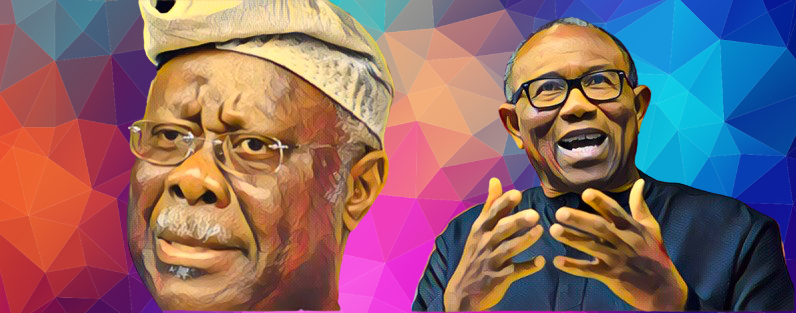Peter Obi, the Labour Party’s presidential candidate in the 2023 elections, has voiced serious concerns regarding the escalating insecurity issues in Nigeria under President Bola Tinubu’s administration. This criticism is shared by other prominent figures like Dr. Pogu Bitrus, President of the Middle Belt Forum (MBF), and Bode George, former deputy national chairman of the Peoples Democratic Party (PDP).
Peter Obi, the former governor of Anambra State, highlighted a disturbing increase in kidnapping and banditry incidents since President Tinubu took office. Citing the Acled Conflict Index, he noted that over 3,600 people were kidnapped in 2023, a record high, with a sharp rise following Tinubu’s inauguration. He criticized the ineffectiveness of the government’s security strategies despite significant defense budget allocations.
Obi emphasized the disconnect between the government’s security efforts and the actual security needs of the populace. He pointed out that the government’s expenditure on expensive weaponry, including attack helicopters and drones, fails to address the root causes of insecurity, such as poverty, poor education, and army atrocities.
Highlighting the misuse of defense funds, Obi underscored that substantial portions of the budget are spent on advanced military equipment, which has limited effectiveness in tackling domestic security issues. He suggested that the police, equipped with better human intelligence capabilities, should lead domestic security efforts rather than the army.
Dr. Pogu Bitrus supported Obi’s assertions, attributing the worsening insecurity to northern extremists unhappy with President Tinubu’s administration. Bitrus expressed concern that these groups are intent on making the country ungovernable, underscoring the need for unity to move Nigeria forward.
Bode George echoed these concerns, stating that the increasing prevalence of kidnappings and loss of lives indicates the government’s failure to protect its citizens. He stressed the importance of a well-coordinated national security plan to create a peaceful environment conducive to economic investment.
George also highlighted the recent kidnappings in Abuja, the Federal Capital Territory (FCT), pointing out that even areas close to the seat of government are not immune to the growing insecurity. He emphasized the need for the government to take immediate action to address these challenges and prevent further societal destabilization.
The critiques from Obi, Bitrus, and George paint a grim picture of Nigeria’s current security situation. Their concerns highlight the government’s inadequate response to the complexity of Nigeria’s security challenges. The issue extends beyond the need for military hardware to a more comprehensive approach addressing the underlying socio-economic factors contributing to insecurity. The government’s ability to implement effective security measures and engage constructively with all stakeholders is crucial in tackling these challenges and ensuring a stable and prosperous Nigeria.
In summary, the rising insecurity in Nigeria, marked by an increase in kidnappings and banditry, has led to significant criticism of President Bola Tinubu’s administration. Prominent figures like Peter Obi, Dr. Pogu Bitrus, and Bode George have highlighted the failure of the government to address these issues effectively. They emphasize the need for a strategic reevaluation of Nigeria’s security policies, focusing on root causes and engaging in comprehensive, community-focused approaches to ensure the safety and stability of the nation.


